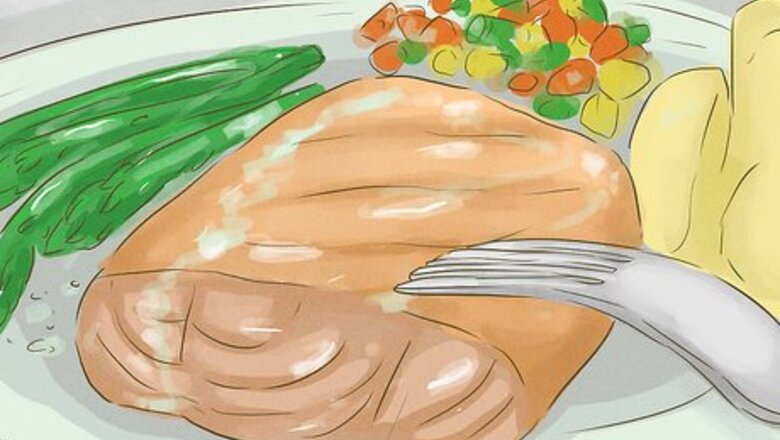
views
X
Research source
Keep a close eye on your diet and health, and see your doctor right away if you suspect a B12 deficiency.[2]
X
Research source
Diet and Supplements
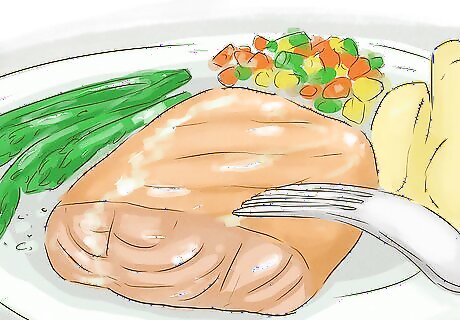
Eat the recommended daily value of vitamin B12. The “daily value” of a vitamin or other nutrient is the approximate daily recommended amount for a healthy adult. For vitamin B12, the daily value is 2.4 mcg. If you eat meat daily, you’re likely already consuming this amount. However, you might need more depending on other factors, like your age and any medical conditions you might have. Talk to your doctor about your specific needs, and monitor your diet to ensure you’re getting enough vitamin B12. The U.S. Department of Agriculture’s Nutrient Database has a list of foods with high vitamin B12 content. Review this list to figure out how much B12 you’re getting from the foods you eat every day. Older sources recommend a minimum daily value of 6 mcg for vitamin B12, but that has been updated due to changes in how nutrition experts understand people’s dietary needs. It’s okay to eat more than the daily value of vitamin B12 in one day—the daily value just a guideline for the minimum amount you should eat each day. It’s very difficult to consume too much vitamin B12, since your body simply passes any excess that you don’t need.
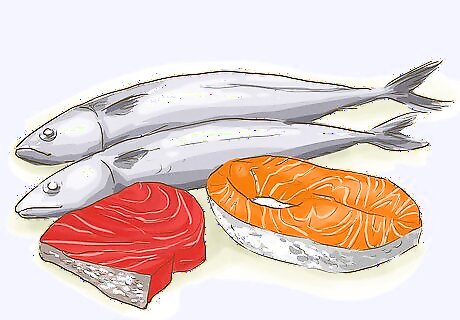
Choose foods rich in vitamin B12, like meat and fish. There are several animal products and fortified foods that are high in vitamin B12. Fish and other seafood, meat, eggs, and dairy are especially good sources. If you’re a vegetarian, opt for cereals or nutritional yeasts that have been fortified with vitamin B12. Clams and beef liver each contain many times the recommended daily value of vitamin B12 in a single 3 oz (85 g) serving. Rainbow trout, sockeye salmon, and tuna are the next 3 natural sources of B12 with the highest content per serving. If you’re vegetarian, eat a serving of a breakfast cereal that contains 100% of the daily value of vitamin B12 every day. Check to make sure the cereal includes this vitamin in particular, as some fortified cereals vary.

Monitor your B12 intake closely if you’re pregnant or breastfeeding. Vitamin B12 is vital for your own health and that of your growing baby. It’s especially important to get extra B12 in your diet if you’re pregnant or breastfeeding and at risk of a deficiency due to factors like your diet and whether you have a history of B12 deficiency. Ask your doctor if you need to take a supplement or get more vitamin B12 in your diet. The recommended daily allowance of vitamin B12 for a pregnant person is 2.6 mcg, and 2.8 mcg per day for a nursing person. These should be considered minimum amounts to consume daily. If you are thinking of getting pregnant, consider starting vitamin B12 supplements at least 1 month before you plan to conceive. Choose a prenatal vitamin with 400-800 mcg of folic acid and 2.6 mcg of vitamin B12. Ask your doctor to recommend a good supplement.
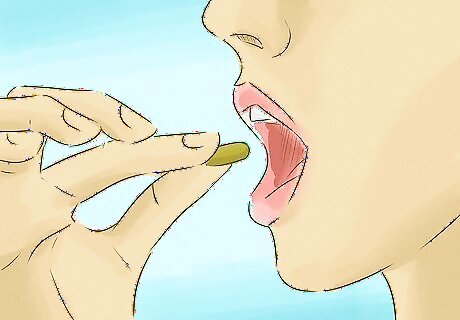
Take a supplement if you can’t get enough B12 from your diet. If you’re know you’re not meeting the recommended daily value of vitamin B12 or other vitamins, consider taking a multivitamin. While eating a healthy diet is a better way to get the vitamins your body needs, multivitamins are a good option if your diet is restricted. Talk to your doctor if you’re unsure about which types of vitamins to take or whether a supplement is right for you. Your ability to absorb vitamin B12 from a dietary supplement is limited by your stomach's natural contents. For example, taking a 500mcg supplement orally will only lead to the actual absorption of about 10 mcg of the vitamin. In addition to oral supplements, you can also get tablets or lozenges that will dissolve beneath your tongue, and even liquid supplements. While different mediums are said to provide greater "bioavailability," there is not a considerable difference between your body's ability to absorb oral versus sublingual (under the tongue) forms of vitamin B12.
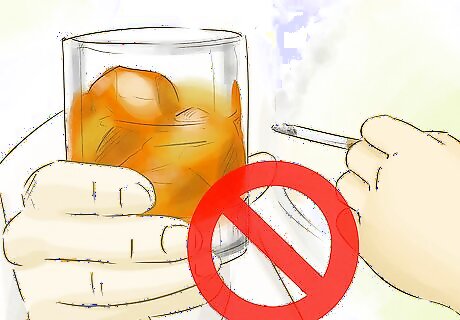
Avoid smoking, and drink only in moderation. Both smoking and drinking alcohol can interfere with the absorption of vitamins and contribute to various forms of deficiency-related anemia. If you smoke, talk to your doctor about the best way to quit. Drink 1 to 2 drinks a day, at most.
Symptoms and Risk Factors

Watch for mild symptoms of vitamin B12 deficiency. A mild vitamin D deficiency can make you feel tired, irritable, and lightheaded. You might also notice that you get winded or out of breath easily, especially when you exercise or exert yourself. Other possible symptoms include: Diarrhea or constipation Loss of appetite Pale skin Redness or swelling in your tongue or gums Bleeding gums

Check if you have risk factors for vitamin B12 deficiency. In addition to not getting enough B12 in your diet, there are several health conditions that can put you at risk of a deficiency. If any of these medical conditions apply to you, ask your doctor if you may need supplements to prevent or treat a deficiency. Diseases that affect your digestion, like Crohn’s or celiac disease, can make it harder for you to absorb nutrients like vitamin B12. A condition called pernicious anemia can make it particularly hard for your body to process vitamin B12. Pernicious anemia is an autoimmune disorder that prevents your stomach from producing enough intrinsic factor, a protein that helps you absorb vitamin B12. Common symptoms include tiredness, shortness of breath, and pale skin. In more advanced cases, you might notice numbness in your hands and feet, poor balance, and a smooth, red tongue.
Monitor your vitamin B12 levels if you’re vegan. You can only get vitamin B12 naturally from animal products, so it’s very easy to become deficient if you eat a vegan diet. Work closely with your doctor or a dietitian to make sure you’re getting the B12 you need, and get tested for deficiencies as often as your doctor recommends. It typically takes about 4-5 years after starting a vegan diet for a B12 deficiency to develop.
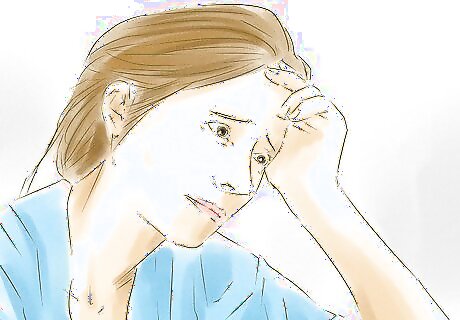
Look out for severe symptoms of vitamin B12 deficiency. Low amounts of vitamin B12 for long periods of time can lead to very serious health issues, including nerve damage. Initial signs of nerve damage include depression and other changes in mental state, a diminished sense of balance, and tingling or numbness in your legs, hands, or feet. These symptoms can have other causes, so see your doctor for a proper diagnosis. The sooner you get treatment for vitamin B12 deficiency anemia, the better chance you will have of fully recovering from these more severe complications.
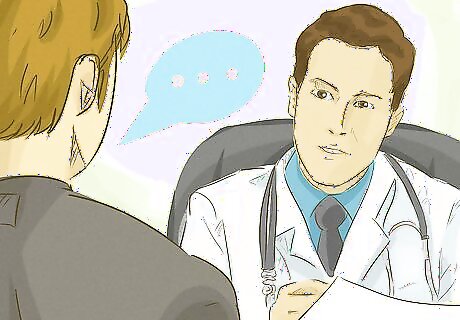
Get checked for a deficiency if you’re at risk due to medical treatments. If you get any type of surgery that removes parts of your stomach or intestines, such as a gastric bypass operation, ask your doctor about how they this may affect your vitamin B12 absorption. Habitually using antacids or heartburn medication may also make it harder to absorb certain vitamins. If you’ve had a gastric bypass surgery (particularly the Roux-en-Y procedure) or some other operation that affects your gastrointestinal system, it’s vital to make sure you’re still absorbing enough vitamin B12. Ask your doctor about adjusting your diet after your surgery. You’ll also probably have to take vitamin B12 supplements. If you have been taking antacids or heartburn medication for a long time, make sure your doctor knows about this when talking with them about a potential vitamin B12 deficiency.
Medical Treatments
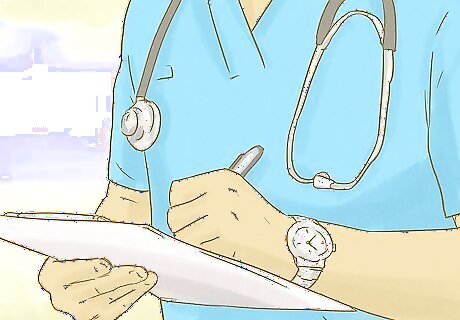
See a doctor for a professional assessment. If you concerned about your diet or are having symptoms of a vitamin B12 deficiency, see a healthcare professional as soon as possible. They’ll likely start with a physical exam to check for issues with your reflexes, since a B12 deficiency can cause neurological problems. Other important tests you should talk about with your doctor are your complete blood count, your reticulocyte count, your LDH protein level, and your actual vitamin B12 level. Causes of B12 deficiency include pernicious anemia, gastrectomy or gastritis, H. pylori infection, age, intestinal disorders, tapeworm infestation, certain medications, inadequate dietary intake, and HIV infection.
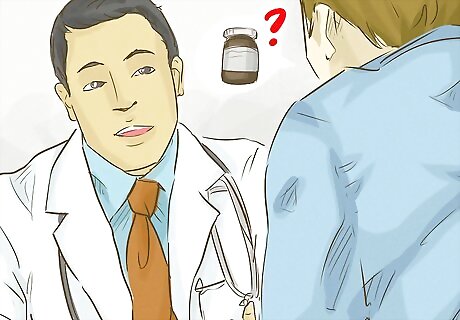
Choose a treatment option based on the cause of the deficiency. If there are no health complications that make it harder for your body to process vitamin B12, you can likely simply add more of this nutrient to your diet. Follow any of your doctor’s recommendations regarding dietary changes, and consider taking vitamin supplements if you are unable to adjust your diet. The goal of any type of vitamin B12 deficiency treatment is to increase your levels of vitamin B12. This may only require dietary changes. Treatment options that your doctor may recommend also include high-dose vitamin B12 tablets that you dissolve under your tongue, or even vitamin B12 injections.
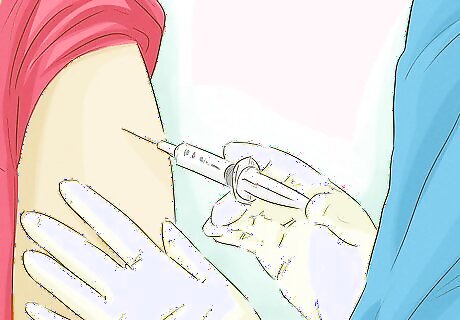
Get vitamin B12 injections for a severe deficiency. If you have a medical or lifestyle complication that prevents your body’s absorption of the nutrient, injections are a good way to ensure you’re still getting the vitamin B12 your body needs. Taking vitamin B12 supplements by mouth is adequate treatment for most people, but your doctor might recommend injections if it’s very difficult for you to absorb or process vitamin B12. If your doctor thinks it’s necessary for you to receive injections, you may need several injections within the first few months of treatment. After a few months of treatment, you will likely need 1 shot per month, potentially for the rest of your life.
















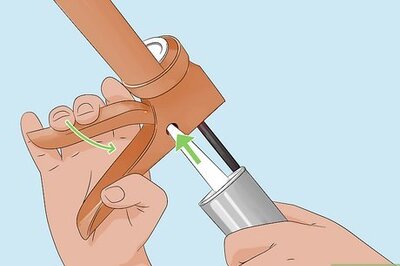


Comments
0 comment